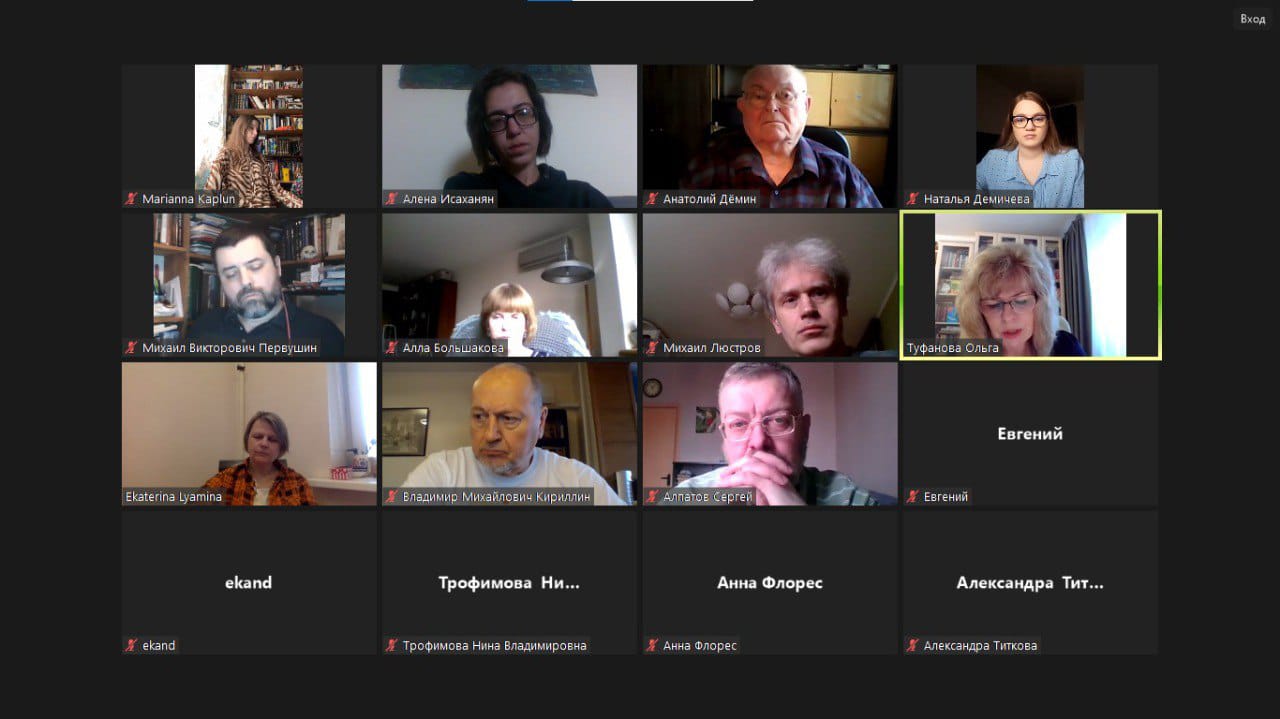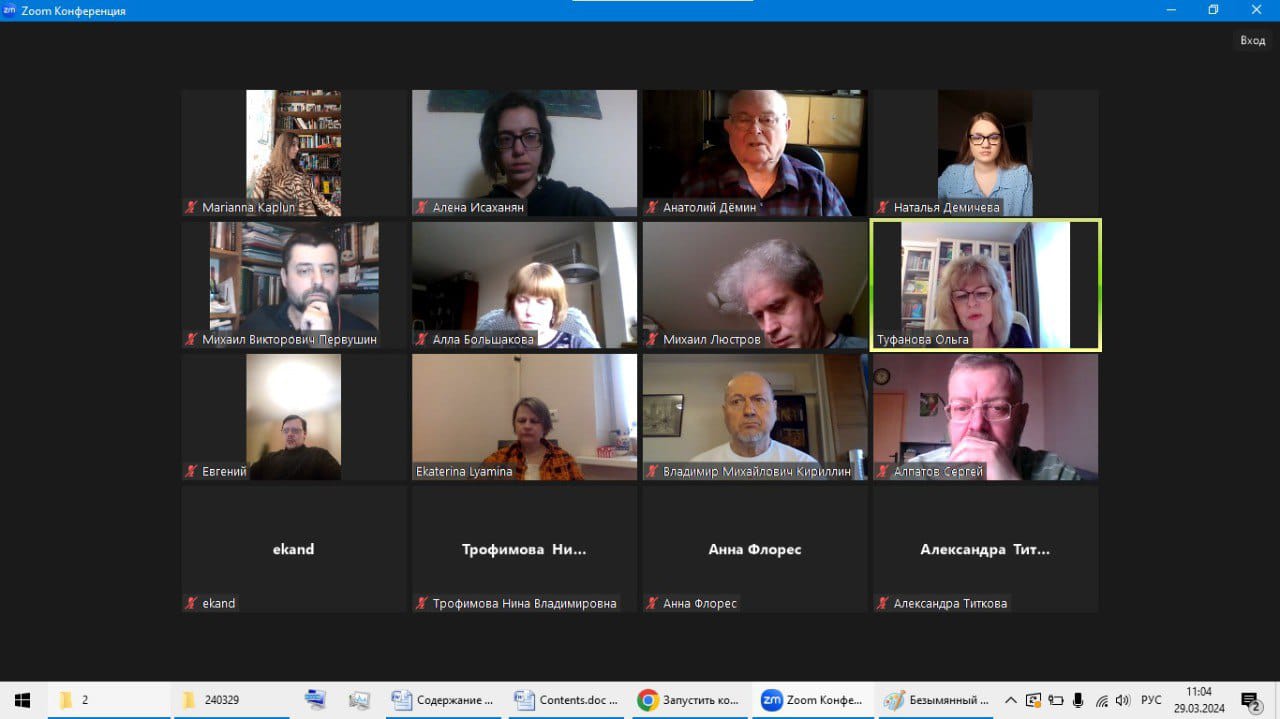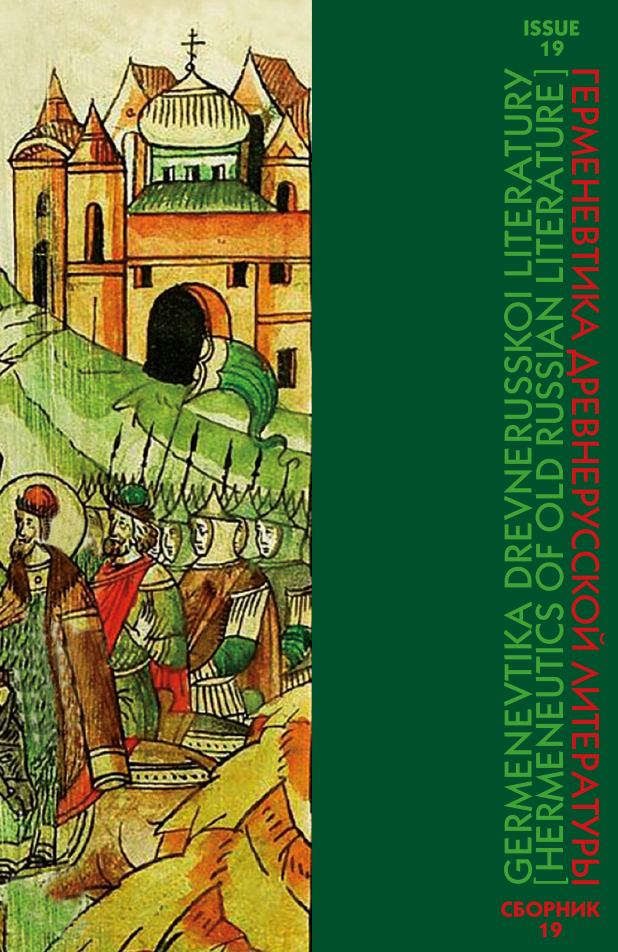“Deviant” Text in the Historical Narrative of Old Russia: Typology of Plots, Poetics, Hermeneutics (Russian Science Foundation Project no. 24-28-00091 https://rscf.ru/project/24-28-00091/)
- On February 19, 2024, Natalia A. Demicheva made a presentation report "The Anthropophagic Plot about Eating a Child in Ancient Russian Historical Works" at the VII Ilyushin Conference that was organized by the Philological Faculty of Lomonosov Moscow State University (on February 19–20, 2024)
Abstract of the report: The presentation considers one of the "deviant" plots, the attention in which is focused on human actions that violate legal, social and moral norms — the plot of the murder and eating of a child by its mother in ancient Russian historical works dedicated to the siege of Jerusalem by Titus in 70 AD (in the Old Russian translation of the "History of the Jewish War" by Josephus Flavius, Tikhonravovsky Chronograph, in the 2nd edition of Chronicler of Hellenic and Roman, in the Russian Chronograph of 1512, and in Chronograph of 1617). The initial situation that led to the deviant behavior of a woman is described; the differences in personal motivation in various texts are revealed; the composition of these anthropophagic fragments in works about the siege of Jerusalem, their role in the works are analyzed, the functions of monologues and dialogues in them and the means by which the author's assessment are expressed.
- On March 29, 2024 at the the meeting of the Department of Old Slavic literature of IWL RAS Olga A. Tufanova made a presentation report “The Problem of ‘Deviant’ Texts in the Historical Narrative of Old Russia: the Theoretical and Literary Aspect”
Abstract of the report: The report presented a theoretical and literary justification for the introduction of the concept of “deviant” text into academic discourse, gave an “operational” definition of the concept, and indicated the most characteristic distinguishing features of “deviant” texts in the historical narrative of Ancient Russia. In particular, the general plot scheme and features of trigger motifs in a number of fragments of relevant subjects were demonstrated. Further, the basic classification principle of dividing “deviant” texts into two large groups was proposed. Within those two groups it is possible to allocate the thematic subgroups. Using the example of criminal plots from the Tale of Bygone Years and the Pskov 2nd Chronicle, the artistic features of the “deviant” texts of the first group, in which violent evil (negative deviation) is imprinted, are demonstrated.
Photo gallery:



- On April 18, 2024, O.A. Tufanova made a presentation report “The Message of Abbot Pamphilus on Folk Rituals as an Example of a Plotless ‘Deviant’ Narrative” at the International Scientific and Practical Conference “Semantics of Folk Culture in Literature” dedicated to the Year of the Family in the Russian Federation (Moscow Pedagogical State University, Institute of Philology, April 18–19, 2024)
Abstract of the report: Based on a comparative analysis of the chronicle and brief editions of the Epistle of Abbot Pamphilus, the report characterized the specifics of plotless “deviant” texts. One of the striking artistic features of those texts are the lists of strange, abnormal actions of the heroes of the narrative. In general, the Message of Abbot Pamphilus in the Pskov 1st Chronicle, which has all the necessary elements from the point of view of the epistolary canon, due to the peculiarities of the subject and argumentative structure, can be considered as a vivid example of a plotless “deviant” narrative that demonstrates the specifics of a local cultural and religious conflict as a conflict of behavior norms in “divergent cultural systems” (T. Sellin) and gives an idea of both the anti-model of behavior during the celebration of John the Baptist Day, and the ideal, normative model of behavior for a Christian.
- On April 18, 2024, N.A. Demicheva made a presentation report “Anthropophagy as a Feature of Pagan peoples in the Representation of Ancient Russian Scribes” at the International Scientific and Practical Conference “Semantics of Folk Culture in Literature” dedicated to the Year of the Family in the Russian Federation (Moscow Pedagogical State University, Institute of Philology, April 18–19, 2024)
Abstract of the report: The report analyzes the phenomenon of depicting pagan peoples as anthropophagus in translated and original ancient Russian works (The Life of the Apostle Andrew the First-Called, The Life of Andrew the Fool, Alexandria of Serbia, the Chronicle of George Amartol, The Tale of Bygone Years, “The Legend of the Unknown People in the Eastern Country”, Chronograph of 1617). Both small descriptions of an ethnographic nature and “deviant” texts (O.A. Tufanova's term) about the clash of Christians with cannibals are considered. The main components of the image of anthropophagus in ancient Russian literature are revealed (the motif of nudity, comparison with animals, zoomorphic and monstrous image on miniatures of manuscripts, etc.). The specificity of texts about the missionary activity of the Apostle Andrew is described.





